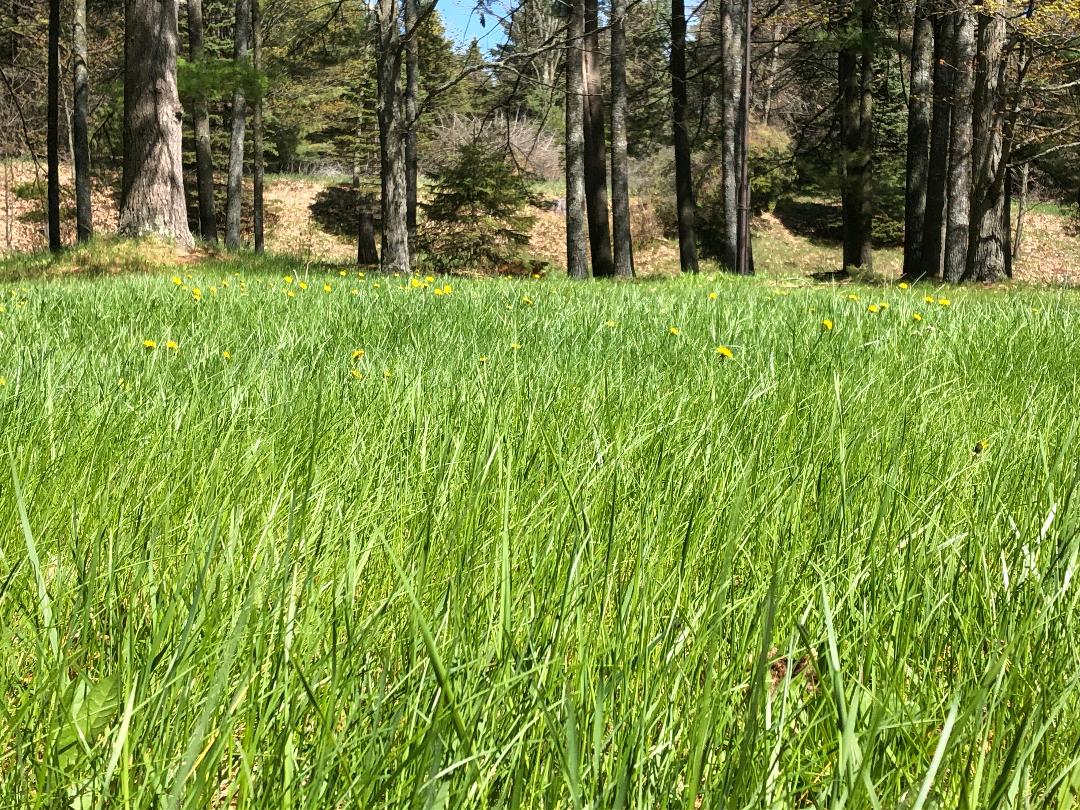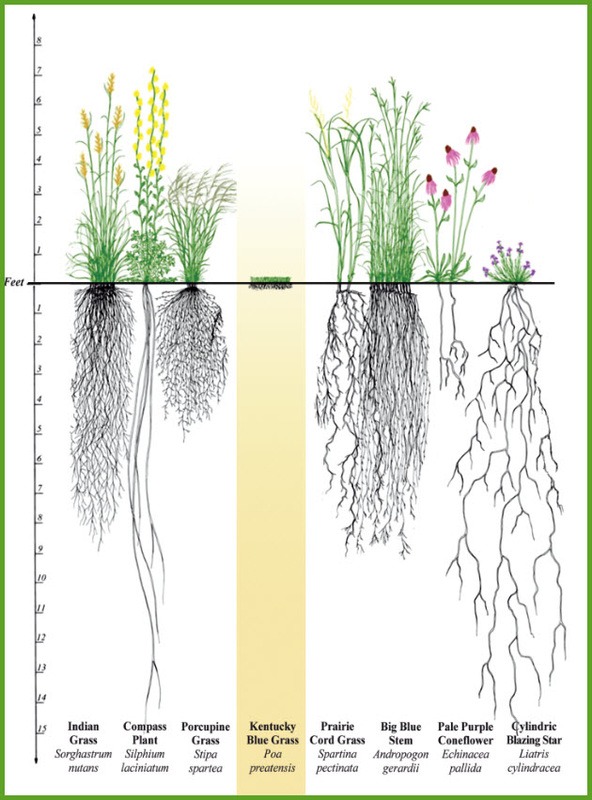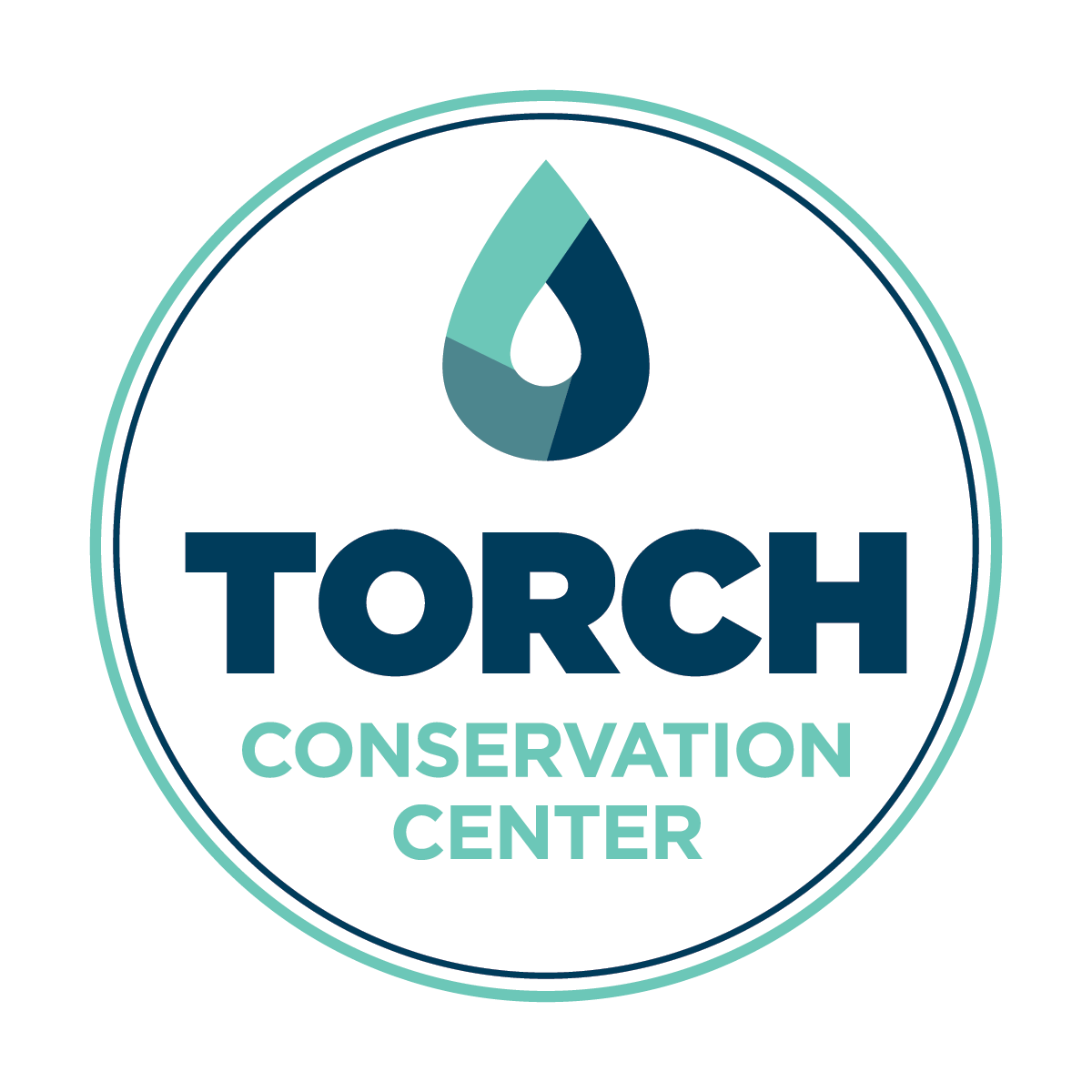 TRUE BLUE Lawns
TRUE BLUE Lawns
Care for Lawns

Photo: Torch Conservation Center
Why doesn’t my grass grow well Up North?
Top soil in the Torch Lake Watershed is less than 1” deep.
Grass needs at least 3” of top soil to grow well.
Non-native grasses such as Kentucky blue grass and perennial rye grass grow in lawns.
- Non-native grasses have very shallow roots- only 3” deep.
- They require more care.
How can I grow grass and care for Torch Lake?
Step 1. Build your soil:
- Initially, add 2-3 inches of topsoil.
- During the growing season, add grass clippings and chopped leaves.
- Annually, add ¼ inch of compost to your lawn to build healthy soil.
Step 2. Choose a grass mixture adapted to our Up North weather.
Grow a mixture of tall fescue and fine fescue grasses that have a larger root mass.
They require less water during the hot summer months.
Step 3. Mow grass high 3 ½ to 4 inches every two weeks
Reduce damage from lawn pests
Its larger root mass (not depth) reduces grub damage.
Taller grass provides habitat for grub eating insects.
So, no need for lawn pesticides.
Prevent weeds
Taller grass shades crab grass seeds so they won’t germinate.
So, no need for a lawn herbicide.
Reduce watering
Taller grass tolerates heat better.
So, needs less watering.

Image: Michigan Natural Shoreline
Step 4. Mow without a collection bag. Keep grass clippings and chopped leaves on your lawn.
Take advantage of free fertilizer
Grass clippings and mulched leaves provide nutrients to your soil.
So, no need for fertilizers.
Reduce watering
Grass clippings and mulched leaves increase the soil’s ability to hold water.
So, needs less watering.
Step 5. Water deeply once a week in the morning.
Reduce weeds and fungus
Weeds and fungus prefer daily watering.
Weekly watering prevents weeds and fungal diseases.
So, no need for fungicides.
What are the benefits to you and our water?
- Saves money on lawn and yard maintenance
- Save money on costly chemicals: fertilizers, pesticides, herbicides ad fungicides
- Saves time with less frequent mowing
- Keeps excess fertilizers (nutrients) and toxic chemicals out of the lake
- Reduces the algae growing on the bottom of the lake
- Prevents dangerously high levels of nitrogen in your drinking water
- Keeps Torch Lake BLUE!
What else can I do to care for my lawn and our water?
Find a lawn care professional willing to use compost, grass clippings and mulched leaves, notchemical or organic fertilizers.
Instruct your lawn care professionals to put leaves in a compost pile instead of blowing them into the lake.
Limit the size of your lawn to the area you need for play, paths and picnics.
Add native flowers and shrubs to the edges of your lawn. Deeper roots of native plants trap excess nutrients, so they can’t reach the lake.
Find more Caring for Water ideas in TRUE BLUE Lawns
Don't just wish that Torch Lake will stay blue.
Choose a water-friendly lifestyle - make a difference!
